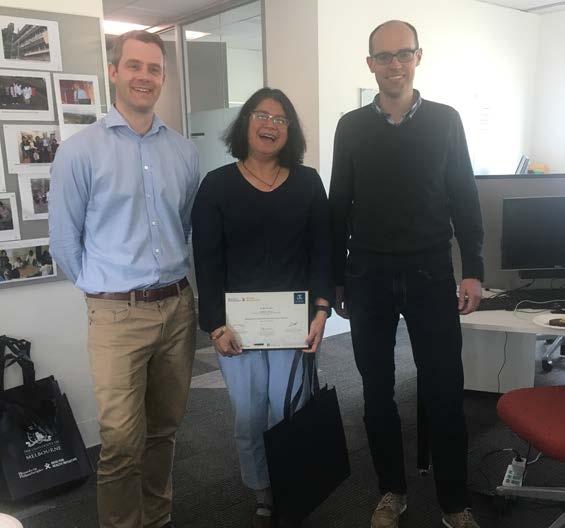
3 minute read
One of the Biggest Contributors to Preventable Deaths isn’t a Health Problem by Jane Inall and Kelly Bartholomeusz
One of the biggest contributors to preventable deaths isn’t a health problem but a record-keeping problem — and it is one that can be solved.
by Jane Inall and Kelly Bartholomeusz
Advertisement
The Bloomberg Philanthropies Data for Health Initiative is a global initiative that has partnered with low- and middle-income countries to reach an anticipated 1.5 billion or more people. The Initiative aims to dramatically improve health data, including improving understanding of the leading causes of premature death, with the ultimate goal to save more lives by ensuring countries have more accurate public health information through strengthened civil registration and vital statistics (CRVS) systems. The University of Melbourne, through the Global Burden of Disease Group in the Melbourne School of Population & Global Health, is one of six implementing partners of this Initiative. The implementing partners focus on improving national capacity, skills and knowledge to strengthen CRVS systems. Interventions include technical assistance to: increase the registration of births and deaths, improve the quality of cause of death information at hospitals, apply verbal autopsy to better understand probable causes of death in communities, produce highquality data sets and develop data analysis skills for policy and program analysis. The Global Burden of Disease Group currently provides this technical assistance in Myanmar, China, the Philippines, the Solomon Islands and
Participants of the SmartVA (Smart Verbal Autopsy) training session 25th to 28th June 2019, Cagayan de Oro, Philippines.
Papua New Guinea.
Pre-testing of paper verbal autopsy (VA) forms at a rural health facility in the Solomon Islands.
In addition to the provision of technical assistance, the Global Burden of Disease Group conducts a CRVS Fellowship program to build capacity in emerging civil registration and vital statistics leaders, and has developed the CRVS Knowledge Gateway to ensure countries have lasting access to vital resources and upto-date information to support CRVS system development. Through these interventions, participating countries and cities are equipped with the necessary knowledge and technical capacity to target specifically issues affecting public health.
May’s Story

From left: Dr John Hart (Fellow supervisor), Dr May Thu Zaw (Fellow) and Dr Tim Adair (Fellowship Director), The University of Melbourne.
Information for prospective PhD students
Data for Health at The University of Melbourne is keen to hear from prospective PhD students to work on research projects related to CRVS systems development in low- and middleincome countries. For more information, please email crvs-info@unimelb.edu.au.
More information
The work by The University of Melbourne on the Bloomberg Philanthropies Data for Health Initiative is funded by Bloomberg Philanthropies and the Australian Government’s Department of Foreign Affairs and Trade. Dr May Thu Zaw is the Deputy Director for the Planning Division for the Department of Medical Service at the Ministry of Health and Sports (MOHS) in Myanmar. During her Fellowship she conducted an analysis of mortality data from three hospitals in Myanmar. May mentions that since the Fellowship, she has incorporated monitoring and evaluation (M&E) activities into interventions in her region. Additionally, she has recently applied for funding from the MOHS for implementation research, which will improve Cause of Death (COD) accuracy in her region. May’s favourite part of the Fellowship program was the one-on-one ANACONDA
training from Dr. Lene Mikkelsen. For more information, go to: https://crvsgateway. info/about and subscribe to our newsletter here: https://crvsgateway.info/news#Subscribe. * * * Jane Inall is the Senior Project Coordinator and Kelly Bartholomeusz is the Communications Officer at the Global Burden of Disease Group, Melbourne School of Population and Global Health, The University of Melbourne.










